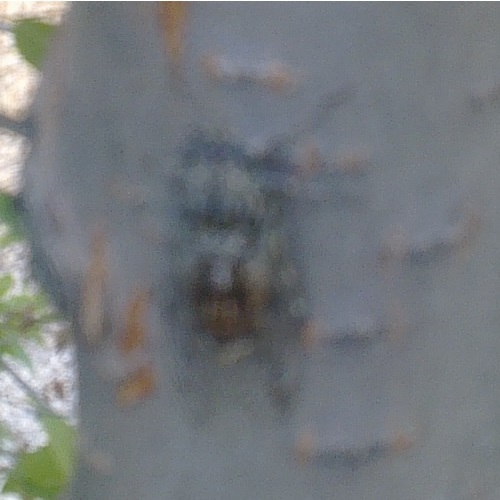I currently live in Madrid, Spain. In July there was a loud animal near the river, in an out of town area surrounded by grassland, with trees along the river.
It's continued into August, though it has reduced.
It sounds like a cricket in general tone and rhythm, but it is always high in the trees, and sounds too deep to be an insect. It's in the frequency range of a squawking bird, so if it's a cricket it must be huge.
On the other hand, if it was a bird, I should have been able to spot one.
Does anyone have any idea what it is?
The sound is rhythmic, rasping note, with two beats of equal duration but slighly different tone, repeated over and over again without any pause. The animal that makes it calls continuously for long periods.
EDIT: thanks to AliceD for the comment, I didn't realise we had cicadas in Europe. It could be a cicada, but it's deeper and more consistent / regular in its song than this one:

